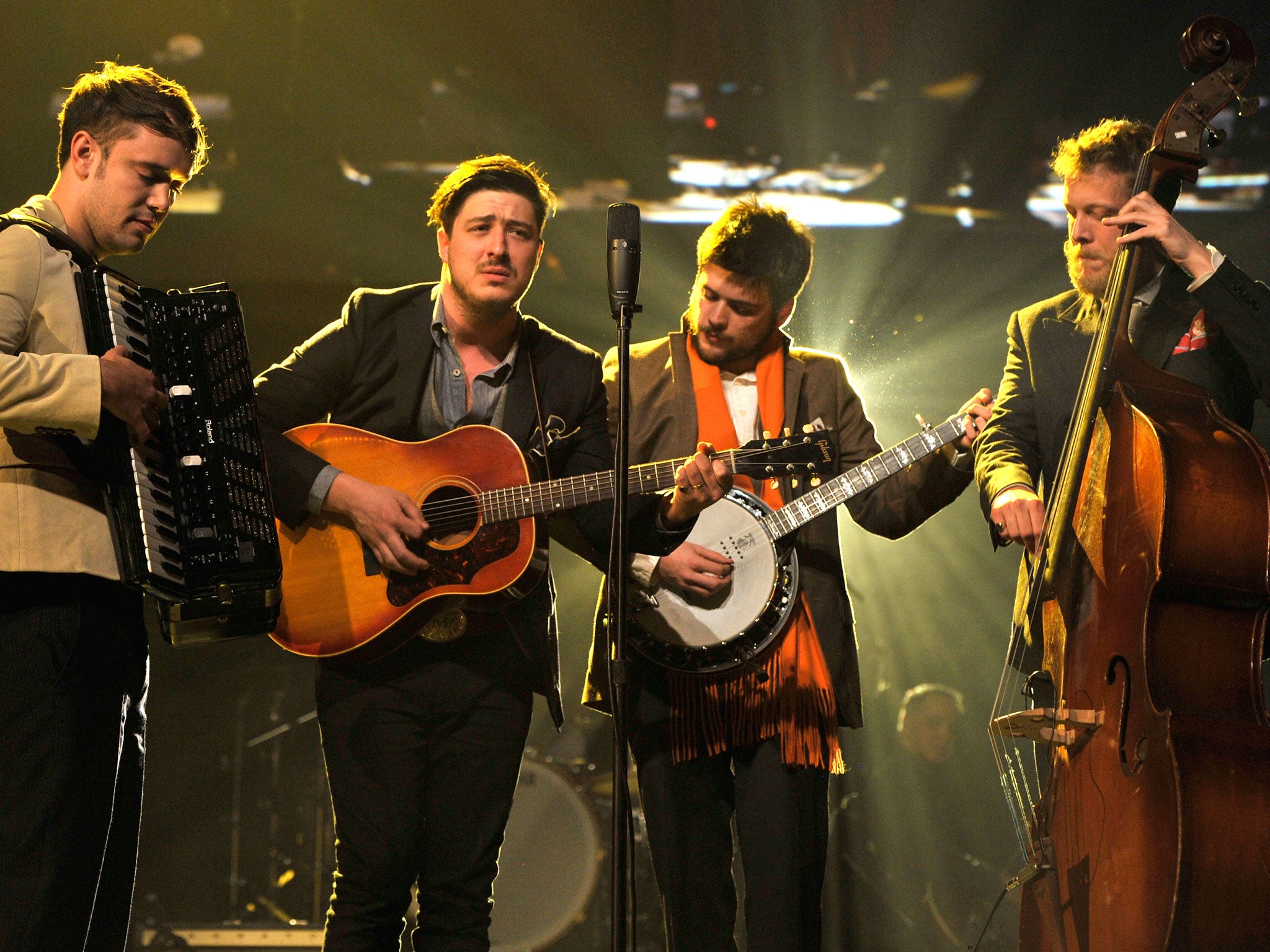Mumford & Sons, Wilder Mind, album review: A major change in direction, but not subject
Out go the banjos, accordions and acoustic guitars, in favour of surging electric guitar riffs and Ben Lovett’s synth and organ textures

Your support helps us to tell the story
From reproductive rights to climate change to Big Tech, The Independent is on the ground when the story is developing. Whether it's investigating the financials of Elon Musk's pro-Trump PAC or producing our latest documentary, 'The A Word', which shines a light on the American women fighting for reproductive rights, we know how important it is to parse out the facts from the messaging.
At such a critical moment in US history, we need reporters on the ground. Your donation allows us to keep sending journalists to speak to both sides of the story.
The Independent is trusted by Americans across the entire political spectrum. And unlike many other quality news outlets, we choose not to lock Americans out of our reporting and analysis with paywalls. We believe quality journalism should be available to everyone, paid for by those who can afford it.
Your support makes all the difference.For all its colossal commercial success, Mumford & Sons’ Babel evinced mostly fair-to-middling critical disappointment at its lack of progress – an opinion perhaps shared by the band themselves, judging by the startling change in direction on this third album.
Out go the banjos, accordions and acoustic guitars, in favour of Winston Marshall’s surging electric guitar riffs and Ben Lovett’s synth and organ textures, while the simple kickdrum and footstomp beats are replaced by more propulsive drumming from Marcus Mumford. Former producer Markus Dravs, meanwhile, has been supplanted by James Ford, best known for his work with Arctic Monkeys. Here, Ford ensures that the Mumfords’ new power is not frittered away cheaply, with tracks like “Believe”, “Only Love” and “Snake Eyes” building gradually from spare, intimate beginnings to rollicking conclusions: the latter, for instance, opening with Mumford’s quiet murmur about “the compromise of truth” before a gently pulsing Neu!-beat leads to a climax that’s the closest electrified equivalent of the Mumfords stompalong.
Elsewhere, the new instrumentation affords a more nuanced approach, from the thrumming bass, piano, tom-toms and subtly tingling guitar evoking the resolute support of “Broad-Shouldered Beasts”, and the keening, spacious synth textures of “Tompkins Square Park”, to the unison guitar thrash that opens “The Wolf”, one of the more interesting, muti-faceted investigations of affection on an album which, like Babel, again focuses perhaps too single-mindedly on romantic problems. Mumford is forever seeking to mend fissures in relationships, wracked by guilt, doubt or recrimination, and hesitant about the future course of love. “I’m not strong enough to cradle the weight of your love,” he frets in “Just Smoke”; while even a comparatively rewarding alliance in the closing “Hot Gates” seems built on desperation.
Join our commenting forum
Join thought-provoking conversations, follow other Independent readers and see their replies
Comments